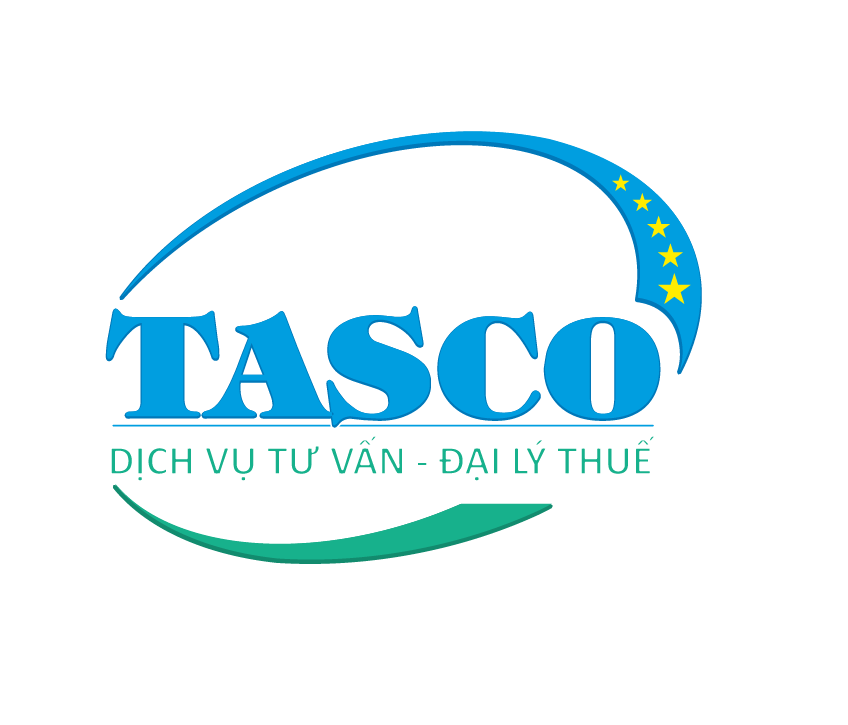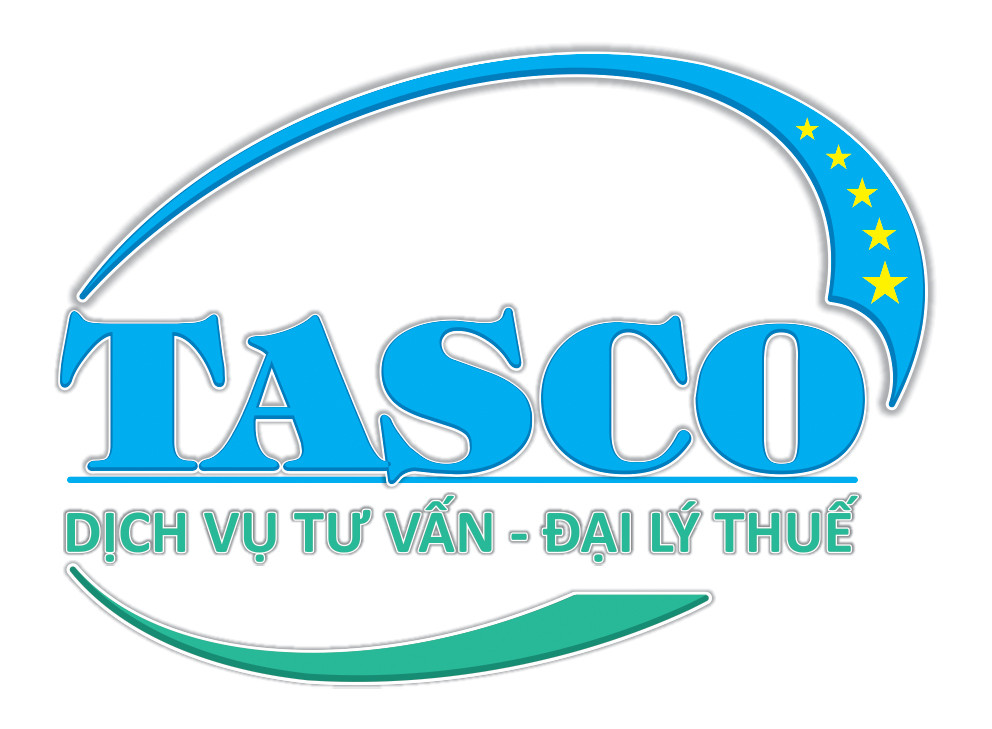08 NOTES WHEN USING E-INVOICES ACCORDING TO DECREE 123/2020/ND-CP
Recently, the General Department of Taxation - Ministry of Finance has issued Circular No. 78/2021/TT-BTC guiding the implementation of e-invoices. Accordingly, the application of e-invoices is divided into 2 stages and is mandatory from July 2022 to all enterprises in Vietnam. TASCO tax agent will point out a number of points to note for organizations and individuals selling goods and providing services that need to understand in order to limit mistakes and violations of the law on e-invoices.
1. Subjects to apply e-invoices:
According to Clause 1, Article 13 of Decree 123 and Article 91 of the Tax Management Law 2019 stipulates that the subjects to apply e-invoices include:
Case 1: Using e-invoices with tax authority's codes
📌 Enterprises and economic organizations use e-invoices with tax authority's codes when selling goods or providing services regardless of the value of each sale of goods or provision of services, except for the case specified in Clauses 2 and 4, Article 91 of the Tax Management Law 2019 (except for the case of using e-invoices without codes or with codes according to each generation).
📌 Business households and individuals with a scale of revenue and labor that meet the highest standards in terms of micro-enterprises according to the provisions of the law on supporting small and medium-sized enterprises must comply with the accounting and tax payment regime according to the declaration method and the cases in which the revenue can be determined from the sale of goods and services.
Case 2: Using e-invoices without tax authority's code
The following organizations are allowed to use e-invoices without tax authority's code when selling goods or providing services, regardless of the value of each sale of goods or provision of services, except for the risk of high taxes and registration of using e-invoices with tax authority's code:
✔️ Enterprises doing business in the fields of electricity, petroleum, post and telecommunications, clean water, finance and credit, insurance, healthcare, e-commerce business, supermarket business, commerce, air transportation, road, railway, waterway.
✔️ Enterprises and economic organizations that have or will conduct transactions with tax authority by electronic means, build information technology infrastructure, have accounting software systems, e-invoice software is responsible for creating and looking up e-invoices, storing e-invoice data according to regulations, and ensuring the transmission of e-invoice data to buyers and to tax authority.
Case 3: Using e-invoices with codes according to each time it is generated
Business households and individuals do not meet the conditions to use e-invoices with tax authority's code in the above 2 cases but need invoices to deliver to customers or in the case of enterprises, economic organizations, and other organizations approved by tax authority to issue e-invoices for delivery to customers will be issued e-invoices with code by the tax authority each time it is generated.
Note: Tax must be declared and paid before the tax authority issues an e-invoice each time it is generated.
2. Compulsory using e-invoices from July 1, 2022
According to Clauses 1 and 3, Article 59 of Decree 123 stipulates:
1. This Decree takes effect from July 1, 2022, encouraging agencies, organizations and individuals that meet the conditions on information technology infrastructure to apply regulations on invoices and electronic vouchers version of this Decree before July 1, 2022.
......
3. To abrogate Clauses 2 and 4, Article 35 of Decree No. 119/2018/ND-CP dated September 12, 2018 of the Government providing for e-invoices from November 1, 2020”.
In addition, in Clause 1, Article 60, enterprises and economic organizations are allowed to use paper invoices until the end of June 30, 2022 for invoices that have been announced to be delivered before October 19, 2020.
Conclusion: The use of e-invoices is only mandatory from July 1, 2022 and the compulsory use of e-invoices will be abrogated from November 1, 2020.
3. Format of e-invoices:
Provisions in Clauses 1, 2, 4, 5, Article 12, Decree 123/2020/ND-CP:
Format of e-invoices is a technical standard that stipulates the data type and data length of the information fields serving the transmission, reception, storage and display of e-invoices. Format of e-invoices using XML (extensible Markup Language); in there:
⭕ The e-invoice format consists of 2 components: the city contains the e-invoice business data and the component contains the digital signature data. For e-invoices with a tax authority's code, there is an additional component containing data related to the tax authority's code.
When sending e-invoice data to the tax authority by direct sending, organizations or enterprises selling goods or providing services must satisfy the following requirements:
❗ Connecting to the General Department of Taxation through a separate tax channel or MPLS VPN Layer 3 channel, including 1 main channel and 1 backup channel. Each channel has a minimum bandwidth of 5 Mbps.
❗ Use Web service or Message Queue (MQ) as the connection method.
❗ Use SOAP protocol to encapsulate and transmit data.
Note: E-invoices must be displayed fully and accurately, ensuring that the contents of the invoice do not lead to misleading interpretations so that buyers can read them electronically.
4. Making e-invoices with tax authority's code: Regulations in Article 17 of Decree 123/2020/ND-CP
- Enterprises, economic organizations, other organizations, business households and individuals mentioned in Clause 1, Article 14 of Decree 123, if accessing the website of the General Department of Taxation to issue invoices, use account was granted when registering to perform:
💡 Making invoices for selling goods and providing services.
💡 Sign digitally on issued invoices and send invoices to the tax authority to issue codes.
- Enterprises, economic organizations, other organizations, business households and individuals that use e-invoices with tax authority's code through an e-invoice service provider, then access the website of the organization providing the e-invoices service or use its e-invoices software to:
💡 Making invoices for selling goods and providing services.
💡 Sign digitally on the issued invoices and send the invoices through the e-invoices service provider for tax authority to issue codes.
Note: Enterprises, economic organizations, other organizations, business households and individuals selling goods and providing services are responsible for sending e-invoices that have been issued with the tax authority's code to the buyer. The method of sending and receiving invoices is done according to the agreement between the seller and the buyer in accordance with regulations.
5. Making e-invoices without tax authority's code (Article 18)
- Enterprises and economic organizations are allowed to use e-invoices without tax authority's code when selling goods or providing services after receiving the notification of acceptance from the tax authority.
- Enterprises and economic organizations use software to make e-invoices when selling goods or providing services, sign digitally on e-invoices and send it to the buyer by electronic method according to the agreement between the seller and the buyer, ensuring compliance with the provisions of the law on electronic transactions.
6. 05 forms of e-invoices applied from July 1, 2022
- Form 01/DKTD-HDĐT: Registration declaration/change of information on the use of e-invoices.
- Form 04/SS-HDĐT: Notice of mistakes on e-invoices.
- Form 06/DN-PSĐT: An application for e-invoices with the tax authority's code for each time it is generated.
- Form 01/TH-HDĐT: E-invoices data summary table.
- Form 03/DL-HDDT: Invoices data declaration, vouchers of goods and services sold.
7. Convert e-invoices into paper invoices:
- According to Article 7 of Decree 123, legal e-invoices and legal e-vouchers can be converted into paper invoices and paper vouchers in the following cases:
⚡ When economic and financial requirements arise.
⚡ At the request of tax management authority, auditing authority, inspection, examination, investigation according to the provisions of the law on inspection, examination and investigation.
- The conversion of e-invoices and e-vouchers into paper invoices and paper vouchers must ensure the correct match between the contents of e-invoices and vouchers and paper invoices and paper vouchers after conversion.
- Value of paper invoices after conversion:
⚡ If e-invoices or e-vouchers is converted into paper invoices or paper vouchers, the paper invoices or paper vouchers is only valid for keeping for bookkeeping and monitoring according to the provisions of the law on accounting and the law on electronic transactions.
⚡ NOT valid for transaction and payment, except for the case that the invoices are generated from the cash register with an electronic data transfer connection with the tax authority as prescribed.
8. 07 cases of stopping using e-invoices:
Enterprises, economic organizations, other organizations, business households and individuals in the following cases stop using e-invoices with or without the tax authority's code:
- Enterprises, economic organizations, other organizations, business households and individuals terminate their tax identification numbers;
- Enterprises, economic organizations, other organizations, business households and individuals that are verified and notified by the tax authority are not operating at the registered address;
- Enterprises, economic organizations, other organizations, business households and individuals notify competent state management agencies of business suspension;
- Enterprises, economic organizations, other organizations, business households and individuals have the notice of tax authorities about stopping using e-invoices to enforce tax debt;
- In case there is an act of using e-invoices to sell smuggled goods, banned goods, counterfeit goods or goods infringing upon intellectual property rights, which is detected and notified to the tax authority by the competent authority;
- In case there is an act of making e-invoices for the purpose of short selling goods or providing services to appropriate money from organizations or individuals, which is detected and notified to the tax authority by the competent authority;
- In case the business registration authority or competent state authority requests the enterprise to suspend its conditional business lines when detecting that the enterprise does not fully meet the business conditions as prescribed.
Based on the inspection and examination results, if the tax authority determines that the enterprise was established to purchase and sell, illegally use e-invoices or illegally use e-invoices to evade tax according to regulations, the tax authority shall issue a decision to stop using e-invoices; enterprises are handled according to the provisions of law.
The above are some points to note for organizations, businesses and individuals dealing in e-invoices, if you have any questions about the above contents, please contact the hotline 0975.48.08.68 (Zalo)
TASCO - Tax agent responsible for all service
TASCO - Give trust - get value
Please contact TASCO for a free consultation:
Hotline: 086.486.2446 - 0975.08.68 (zalo)
Website: dailythuetasco.com hoặc dichvutuvandoanhnghiep.vn





main.comment_read_more